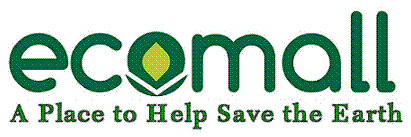

SEEDS OF DESTRUCTION



SEEDS OF DESTRUCTION

** For decades, Monsanto and other agrichemical companies have relentlessly promoted farming systems aimed at making farmers dependent on synthetic chemicals. With the enthusiastic support and complicity of USDA, the plan worked beautifully. In the U.S., the use of chemical pesticides grew 33-fold from 1945, peaking at 1.1 billion pounds (about 4.4 pounds per year for each man, woman and child) in 1995.1 Now with growing numbers of pesticide-resistant insects, and consumers better-informed about the dangers of pesticide residues on food, Monsanto acknowledges that "current agricultural technology is not sustainable," as their most recent annual report puts it. Now Monsanto is planning to shift American farmers from the pesticide treadmill to a biotech treadmill.
** For thousands of years, farmers have saved a portion of this year's crop to provide seeds for next year's crop. Monsanto intends to end that age-old practice by requiring farmers to come back to them each year to purchase new seeds. Potatoes are not grown from seeds --they are grown by planting "eyes" of other potatoes. Before you buy a bag of Monsanto's pesticidal potatoes you must sign a contract promising that you will not retain any of your potatoes toward next year's crop. This will force you to purchase more potatoes from Monsanto next year. According to the TIMES, Monsanto is using informants and Pinkertons, and has brought legal action against hundreds of farmers, to enforce its contract rights.
To tighten the noose on farmers, Monsanto has a new technology in the pipeline, called "the Terminator." Terminator technology was developed with public funds by U.S. Department of Agriculture (USDA) and a seed company that Monsanto is in the process of buying. The Terminator is a group of genes that can be spliced into any crop plant, sterilizing all of the plant's seeds. Once Terminator technology has been widely adopted, control of seed production will move from the farmer's field to corporate headquarters and farmers will become wholly dependent upon corporations for seeds. As the TIMES summarized it, "The Terminator will allow companies like Monsanto to privatize one of the last great commons in nature --the genetics of the crop plants that civilization has developed over the past 10,000 years." Brilliant and ruthless.
** In a multi-million-dollar advertising campaign in Europe, Africa and the United States, Monsanto claims that its new emphasis on genetic engineering is aimed at feeding the world's hungry and saving the environment from pesticides of the kind it has produced in megaton quantities for the past 40 years. However, the TIMES offered insights into genetic engineering that make Monsanto's new path seem at least as destructive as its old path, and perhaps considerably worse.
** Monsanto says that its genetic manipulations are providing the "operating system" for running a new generation of plants. But the analogy breaks down quickly. A computer operating system, like DOS or Windows or Unix, is fully understandable by the programmers who wrote the code. On the other hand, the genetic code was written by the Creator and no human --or group of humans --understands even a small fraction of it. Putting genetically-engineered plants and animals into the natural environment is nothing more than a crap shoot --one with potential consequences far greater than Monsanto's previous calamitous experiments, polychlorinated biphenyls (PCBs) and Agent Orange.[3]
** The TIMES says that, to create its New Leaf Superior pesticidal potatoes, Monsanto has had to introduce the Bt gene into thousands of potatoes to get it right because often the introduced gene ends up in an unexpected place in the potato's DNA, creating a plant that doesn't have the right pesticidal properties, or one that is an outright freak. "There's still a lot we don't understand about gene expression," says David Stark, co-director of Naturemark, Monsanto's potato subsidiary, in a monumental understatement.
** Richard Lewontin, a Harvard geneticist, told the NEW YORK TIMES that Monsanto's comparison of genetically engineered plants to an "operating system" isn't the right comparison. Instead, Lewontin said, the genetic code is more like an ecosystem. "You can always intervene and change something in it, but there's no way of knowing what all the downstream effects will be or how it might affect the environment. We have such a miserably poor understanding of how the organism develops from its DNA that I would be surprised if we don't get one rude shock after another," Lewontin said.
Written by: Peter Montague
RELATED LINKS:

| * * * IN-HOUSE RESOURCES * * * |
|---|